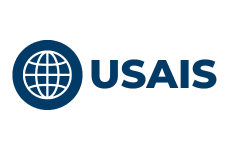H1B Visa - Specialty occupation

H1B Visa: Your Guide to Work in the United States
Are you a skilled Indian professional dreaming of working in the United States? Or do you have a job in the U.S. that needs an H1B visa? This guide is here to help you. It will show you how to navigate the H1B visa system and make your dream come true.
The H1B visa lets foreign workers come to the United States for a job. If you want an H1B visa or need to extend or change yours, this article has what you need. We’ll walk you through everything from eligibility to applying.
Key Takeaways:
- Explore the fundamental aspects of the H1B visa, including its eligibility requirements and the application process.
- Discover the steps involved in transitioning from an H1B visa to a green card, unlocking the path to permanent residency.
- Learn about the H1B visa lottery and understand the strategies to increase your chances of success.
- Understand the options for extending or transferring your H1B visa, ensuring your continued employment in the United States.
- Gain insights into the costs and fees associated with the H1B visa, helping you plan your financial journey.
Understanding the H1B Visa
The H1B visa lets foreign workers, like Indian professionals, work in the U.S. It’s for jobs that need special skills. This visa helps U.S. businesses hire experts from other countries when they can’t find enough American workers.
What is an H1B Visa?
This visa is for temporary work and lasts up to 6 years. It’s for workers with special skills. They work in jobs that need a bachelor’s degree or more, like tech, engineering, science, and finance.
Eligibility Criteria for H1B Visa
To get an H1B visa, you must:
- Have a bachelor’s degree or higher in a specialty occupation
- Have a job offer from a U.S. employer in a specialty occupation
- The job must need the use of highly specialized knowledge
- Have the right credentials or licenses for the job
The H1B visa is in high demand, with only a few available each year. Those who qualify enter a lottery to get picked for a visa.
H1B Visa Requirements
To get an H1B visa, you must meet certain requirements. These show you’re an expert and fit for the program. You need to have the right education and a job offer from an employer.
Educational Qualifications
A key requirement is a bachelor’s degree or higher in a specific field. This degree must match the job you’ll do in the U.S. Jobs can be in engineering, computer science, medicine, accounting, or other specialized areas.
Sometimes, work experience can replace the need for a degree. But, this depends on the U.S. Citizenship and Immigration Services (USCIS) review.
"The H1B visa is a crucial program that allows U.S. companies to hire highly skilled foreign workers and remain competitive in the global market."
Employer Sponsorship
You also need a job offer from a U.S. employer who will sponsor your visa. The employer must prove the job is a specialty occupation. They must also show you have the right skills for the job.
- The employer must file a Labor Condition Application (LCA) with the Department of Labor. This shows the job pays the going rate for the area.
- Then, the employer must send a completed H1B visa petition to the USCIS. This includes details on the job, your skills, and why the company needs you.
It’s important to meet these H1B visa requirements to work in the U.S. Make sure to check the eligibility criteria and work with your employer for a smooth application.

"The H1B visa program is an essential pathway for skilled foreign workers to contribute their expertise to the U.S. economy."
The H1B Visa Process
Getting through the H1B visa application can feel overwhelming, but with the right help, you can make it. The h1b process has key steps, from the first filing to handling the h1b fees and costs.
Filing the H1B Visa Petition
The first step is for your employer to submit a Labor Condition Application (LCA) to the Department of Labor. After the LCA is okayed, your employer can file the H1B visa petition for you. This includes a detailed application and supporting documents to the U.S. Citizenship and Immigration Services (USCIS).
Here’s what you’ll need for the H1B visa petition:
- A completed Form I-129 (Petition for Nonimmigrant Worker)
- Proof of your educational background, like transcripts and diplomas
- Proof of your expertise in your field
- A job offer letter from your employer
H1B Visa Fees and Costs
The h1b fees and costs for the H1B visa are quite high. Knowing about them is crucial. The main fee for the H1B visa petition is $460. But, there could be more fees, like:
The H1B visa is a popular option for foreign professionals seeking job opportunities in the United States. However, it’s essential for applicants to be aware of the associated fees and costs. The main fee for the H1B visa petition is $460, which must be paid at the time of filing. This fee covers the processing of the application and is non-refundable, regardless of the outcome.
In addition to the filing fee, there may be other fees that applicants need to consider. For instance, if you opt for premium processing, which speeds up the adjudication process, an additional fee of $2,805 is required. This expedited service is optional and may be especially beneficial if you’re looking for faster results.
Moreover, it’s important to mention that the H1B visa is subject to certain requirements and restrictions. Employers sponsoring foreign workers must fulfill various obligations, including the payment of certain fees. Additionally, H1B visa holders may need to pay for extensions or transfers, which might involve additional costs. It’s advisable to consult with an immigration consultant or experienced professional to understand all the expenses involved and navigate the complex H1B visa process more effectively.
Remember to include these h1b costs in your budget for the H1B visa application.

H1B Visa Lottery
The H1B visa program is a top choice for skilled workers wanting to work in the U.S. But, there are more applicants than visas available each year. This leads to a lottery to pick who gets a visa.
The lottery is a tough and complex system. It makes many applicants unsure of their chances. Knowing how the lottery works and the best strategies can help you stand out.
Understanding the H1B Visa Lottery
The H1B visa lottery picks winners randomly by the U.S. Citizenship and Immigration Services (USCIS). It starts when more petitions are sent than the yearly limit, which is 85,000 visas.
The lottery process includes these steps:
- USCIS starts taking H1B visa petitions on April 1st every year.
- If there are more petitions than the cap, USCIS picks winners randomly.
- Winning petitions are processed, and the rest are rejected.
Navigating the H1B Visa Lottery
To boost your chances in the H1B visa lottery, try these tips:
- File your petition early: Submitting your petition early increases your chances.
- Ensure your petition is complete and accurate: Mistakes or missing info can cause your petition to be rejected.
- Consider alternative visa options: If you don’t win the lottery, look into other visas like the L-1 or O-1.
The H1B visa lottery is complex, but understanding it and using smart strategies can help you get an H1B visa. This can make your dream of working in the U.S. come true.
Transitioning from H1B Visa to Green Card
Many H1B visa holders aim for a green card and permanent U.S. residency. The move from an H1B visa to a green card is complex but doable with the right help and knowledge. Understanding the steps is key.

Steps for H1B Visa to Green Card
The journey from an H1B visa to a green card has several steps. Each step may change based on your situation. Here are the main steps to think about:
- Employer Sponsorship: Getting a green card often means an employer must sponsor you. They need to show they really need your skills and are ready to back your green card application.
- Labor Certification: Sometimes, the employer must get a labor certification from the Department of Labor. This proves there are no U.S. workers for the job.
- Immigrant Visa Petition: After sponsorship and labor certification, the employer files an immigrant visa petition (Form I-140) with the USCIS.
- Adjustment of Status: If you’re in the U.S. on an H1B visa, you can apply for a green card without leaving the country. You file an “Adjustment of Status” application (Form I-485).
- Consular Processing: If you’re outside the U.S., you’ll go through consular processing. This means an interview at a U.S. embassy or consulate.
The whole process can take a few months to a few years. This depends on where you’re from and how many green cards are available.
The h1b visa sponsorship process is complex and takes time. It’s wise to work with an experienced immigration consultant. They can help you navigate the process and make sure you meet all the requirements.
H1B Visa Extensions
Keeping your H1B visa status is key for your job and living in the U.S. You can extend your H1B visa, which lets you stay longer and keep working. To extend it, you need to meet certain requirements and know what to do.
The H1B visa is given for up to three years at first, but you can extend it for another three years. This means you could stay in the U.S. on an H1B visa for six years total. To extend it, you must send a petition to the U.S. Citizenship and Immigration Services (USCIS) before it expires. You’ll need to include things like proof of your job and your skills.
Thinking about extending your H1B visa means looking at your situation and what you want for the future. Things like your employer’s support, your job now, and your future plans matter. It’s a good idea to talk to an immigration consultant. They can help you with the process and make sure your application is done right and on time.
Talk To Us
Source of Information: www.uscis.gov
Need Help with Your H-1B Visa Process?
We offer expert guidance to help you through every step of the H-1B visa process, ensuring a smooth and successful application experience.
FAQs
Frequently Asked Questions ?
Here you’ll find answers to some of the most commonly asked questions about our services, processes, and policies. If you have any other questions, please feel free to reach out to us directly.
The H1B visa lets foreign workers, like Indian professionals, work in the U.S. in special jobs. It’s a temporary visa that lets the holder live and work for a specific employer in the U.S.
To get an H1B visa, you need a bachelor’s degree or higher in a special field. You also need a job offer from a U.S. employer who will sponsor your visa.
You need a bachelor’s degree or higher in a field like computer science or engineering for an H1B visa. Sometimes, work experience and education combined can also qualify you.
The employer files a petition for the H1B visa applicant, submits documents, and pays fees. After approval, the applicant applies for the visa at a U.S. embassy or consulate.
H1B visa fees include a base filing fee, an ACWIA fee, and a fraud prevention fee. The total cost can be $2,000 to $5,000 or more, based on the employer’s size and other factors.
The H1B visa has an annual cap, and when there are more applicants than visas, a lottery picks which petitions to process. Employers must file their petitions during a set period. Winners are chosen randomly.
Yes, H1B visa holders can get a green card through employer sponsorship or family-based petitions. This involves more steps, like labor certification and filing immigrant visa petitions.
Yes, H1B visas can be extended for three more years, up to a total of six years. To extend, the employer must file a petition, and the applicant must still meet the eligibility criteria.
